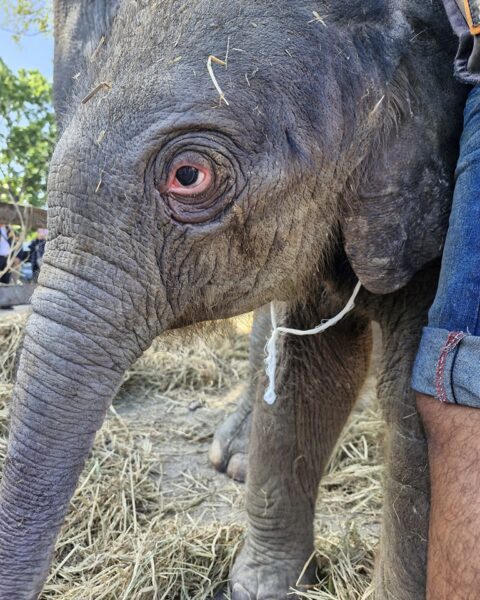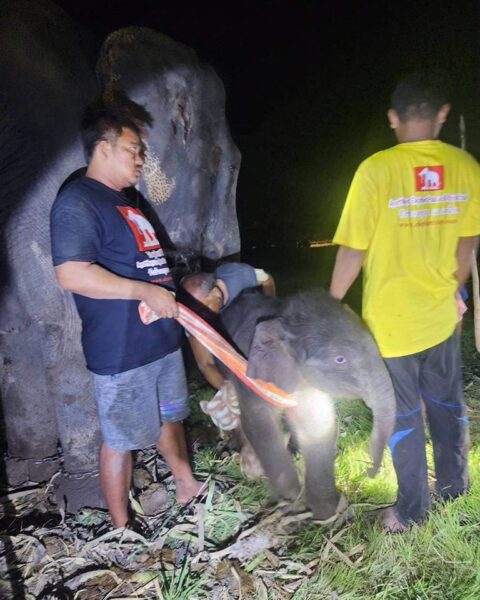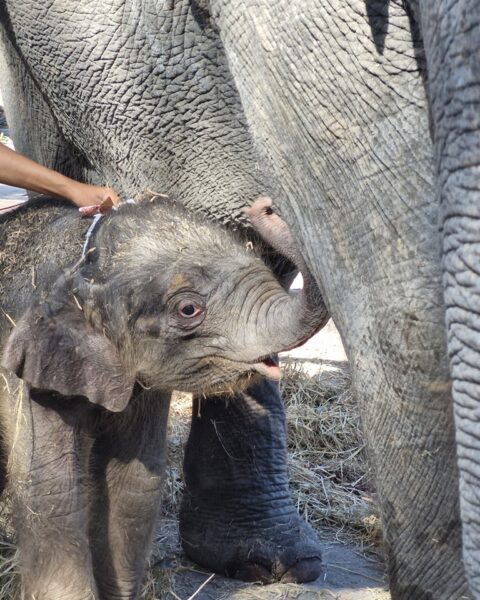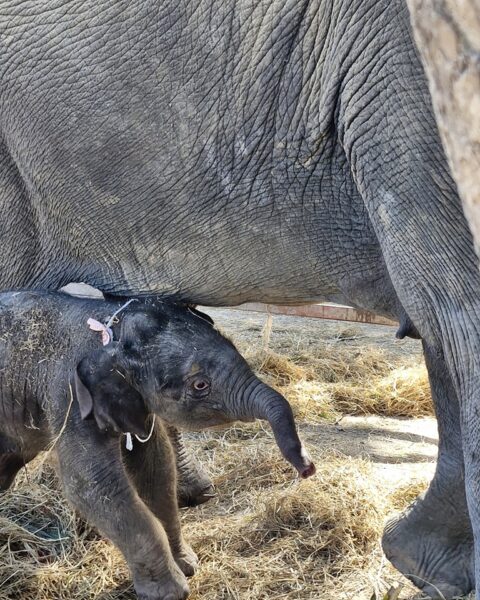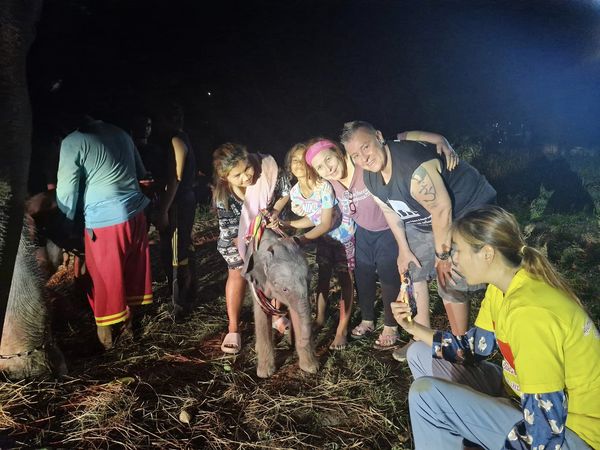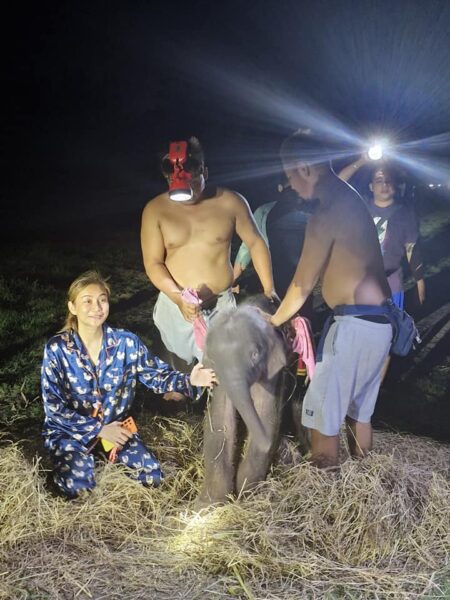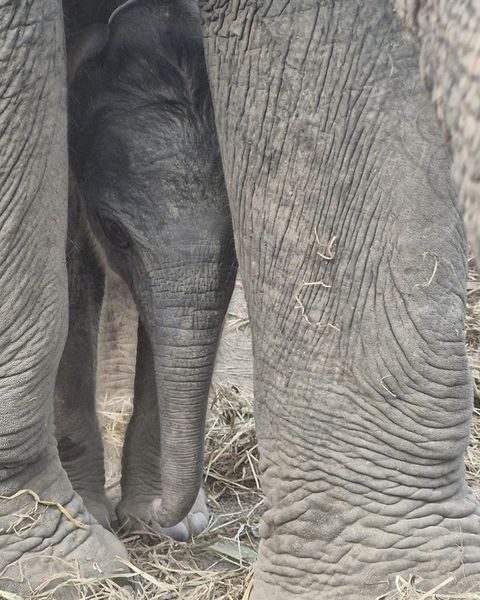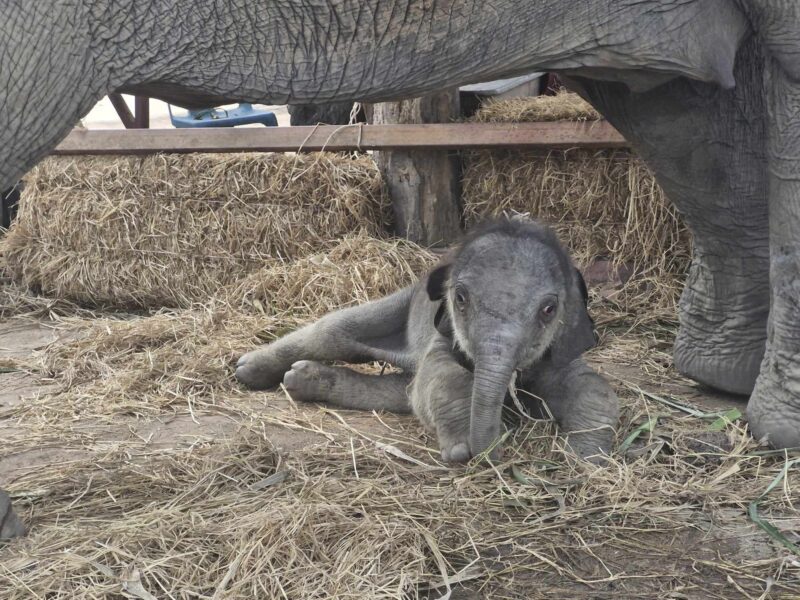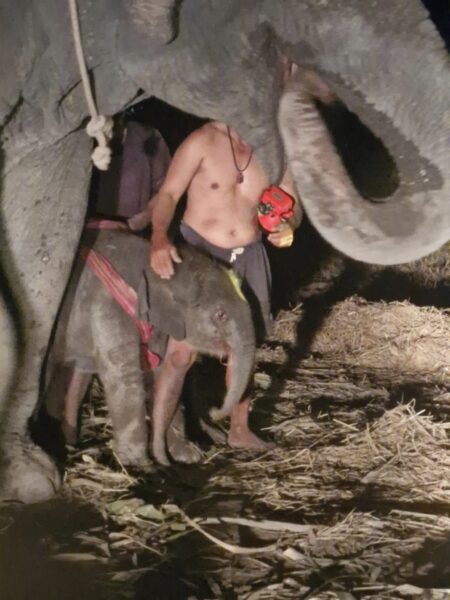Births 2016
Birth No. 89 - 14 June 2024
And yet another extraordinary event happened with Galaget giving birth to a big healthy baby boy! Keep em coming mummas. Healthy happy elephants breed.
Birth No. 87 and 88 - TWINS
7 June 2024
The most exciting birth of all. The biggest reward we could ever have was the birth of the only male and female twins in the world!
It was the biggest surprise ever when Jumjuree popped out another baby at 9.18 pm, after the first baby arrived at 9pm. Everyone was ecstatic! Jumjuree tried to kill the second baby but the mahouts acted quickly and got baby away with no regard for their own safety. Their dedication, commitment and bravery is everything.
The birth of the twins was a significant event. So significant that the King of Thailand graciously bestowed names on our Twin elephants.
The name "พลายสรรพลักษณ์โสภณ" (Phlai Sarn Phon Lak) is a traditional Thai name given to an elephant, carrying cultural, spiritual, and symbolic significance.
- "พลาย" (Phlai): Refers to a male elephant
- "สรรพลักษณ์" (Sarn Phon Lak): denotes the elephant has excellent, beautiful and auspicious qualities
- "โสภณ" (Sopon): Means "beautiful," "handsome," or "noble."
Together, the name suggests that the elephant is esteemed for its noble qualities, beauty, and auspiciousness. Such names are often given to revered elephants, symbolizing strength, dignity, and good fortune, reflecting cultural values and hopes for prosperity and protection.
The name พังสกลลักษณ์โสภิต (Phangsakunlak Sopit)
- "พัง" (Phang): refers to a female elephant
- "สกล" (Sakun): Often associated with "world" or "universe," symbolizing vastness or universality.
- "ลักษณ์" (Lakkha): Typically means "character," "shape," or "appearance."
- "โสภิต" (Sopit): Means "beautiful" or "radiant."
Significance: symbolize, universality, and beauty. Intended to honor the elephant’s grandeur, strength, and majestic presence, and to imbue her with auspicious qualities rooted in Thai culture and language.
Birth No. 86 - 3 April 2024
We are all excited to welcome to the world Number 86! Little girl born this morning 1.55am to Pang Namphueng. This is her 6th baby! Mum and baby doing very well. Saving the species one birth at a time!
Our precious babies always deserve a beautiful and meaningful name. Namphueng's baby is no exception. Jumbo thanks to Lalipa Nilubol for this fantastic translation and background.
Gaew Fah (แก้วฟ้า) means ‘glass sky’, with ‘gaew’ (แก้ว) meaning glass, and ‘fah’ (ฟ้า) meaning sky. Gaew also means crystal. And once the sky acquires poetic associations with crystalline properties, the concept of ‘gaew fah’ (glass sky, or crystalline sky) then relates back to the goddess Manimekhala (Maṇīmekhalā in Pali), guardian of the seas in the mythology of the Indian Subcontinent and Southeast Asia. The shorter version of the goddess’s name in Thai is Mekhla.
The story of Mekhla and the ogre Ramasura features in ancient beliefs concerning storms, thunder and lightning. Legend has it that lightning is produced by the flashing of Mekhla’s crystal ball as she waves it about among the clouds. And the sound of thunder is produced by the throwing of Ramasura’s axe as he pursues Mekhla across the skies, attempting to kill the goddess, due to his greed and desire to take possession of the crystal ball. It is believed that the battle between the goddess and the ogre brings out the terror of the skies as the flashing of crystalline power, which is essentially the phenomenon of lightning, cracks the sky open.

